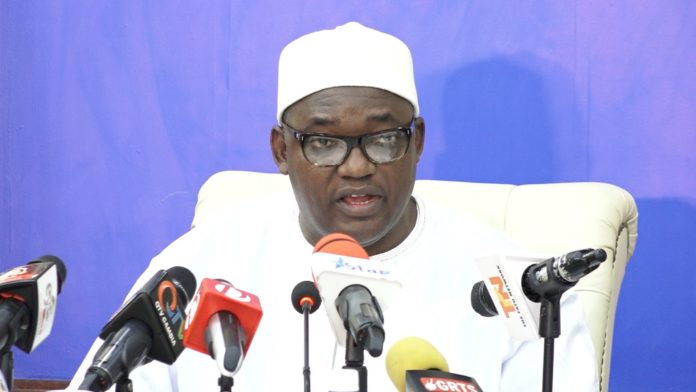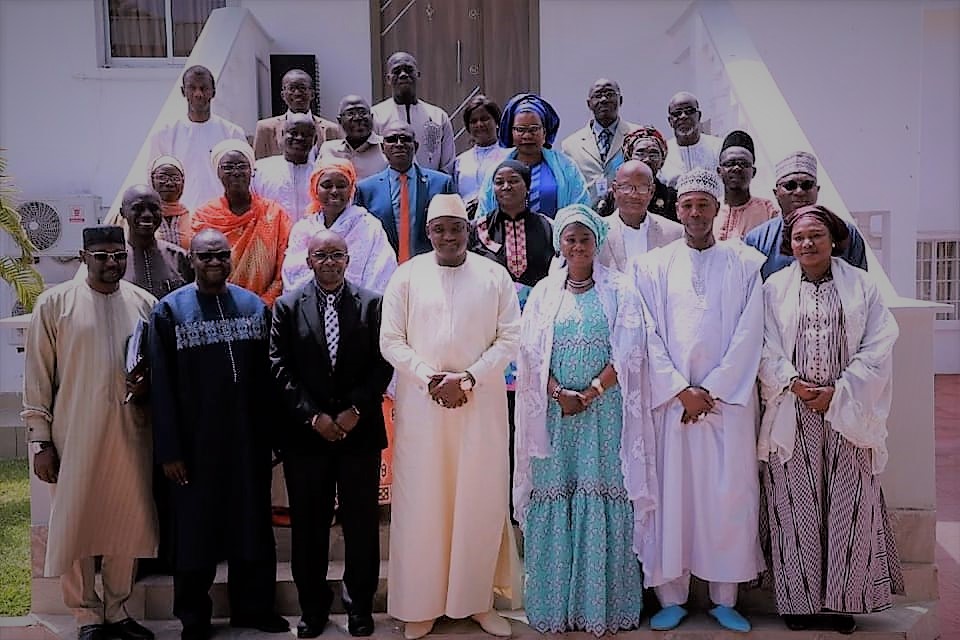
President Barrow Shall Appoint Few Loyalists As Ministers And Not Just a Bunch of Figureheads or “Team of Rivals” Appoint a Competency-Based Civil Service by Reinventing Robust State Civil Service.
To have an efficient civil service, a president must have a limited number of appointed cabinet ministers. On the other hand, the civil service needs vast staff to provide adequate and effective services because it must implement all the government’s policies.
Therefore, civil servants must be employed in large numbers to accelerate development at the country level. The Gambia, with a population of 2 million, has 15 ministerial positions, the same number as in the United States, which has a population of 350 million people, is entirely unreasonable.
The United States of America, with its 50 States, extensive territory, and a huge population, has 15 central federal government departments headed by secretaries (ministers). We copied our brand of a presidential system of government from there.
For a long time, Gambians have been complaining about the bloated size of the government. We all want a slimmer and more efficient government. We decry a situation in which, recurrently in our national budget, recurrent expenditure outweighs our capital votes by almost eighty to twenty percentage. We say this is not sustainable.
However, sadly, again, it appears the principles of governance have been sacrificed on the altar of crass politics and by some politicians who are always desperate to occupy political offices and perpetuate political sinecures.
According to the concept and principles of the civil service under a Westminster-style democracy and ‘the developmental state,’ “the political class reigns, but the civil service rules.” Under such a system, senior civil servants often earn more money than political leaders because they run their affairs.

Therefore, we should discard the illusion that 18 ministerial cabinet positions will help the Gambia manage its diversity better and guarantee inclusiveness and geopolitical and ethnic balance in the composition and operation of the central government.
In any case, and this context must be kept in mind, there are many layers of representation in government: the councilors at the local government level and the National Assembly level.
A famous African proverb states that having large manhood does not guarantee twins. Instead, competent, efficient, and innovative individuals are needed to achieve the results.
The civil service determines the country’s development plan and sends it to the political leadership to be approved. This way, it operationalises the nation’s long-term vision usually pioneered by the political elite.
In such systems, the civil service is permanent (which is why we have permanent secretaries), and politicians are temporary. This facilitates smooth political transitions after elections or when ministers change ministries.
How can developing countries with large populations function effectively with few cabinet ministers? For example, Japan has 17 cabinet ministers, while Britain has 13 ministerial positions.
The United States of America has a system where a Secretary is assisted by three or four undersecretaries assigned to specific areas of the department’s jurisdiction.
How can the Gambia and other emerging economies emulate developed countries by assigning other duties or portfolios to competent civil servants who can manage the line departments?
Why does South Africa have fewer than 40 ministers? With a population of 46 million, Spain has 14 ministers, Tanzania, with a population of 57 million, has 19 ministers.

However, with a population of 128 million, nearly with a GDP of $5,420 billion, Japan has 17 cabinet ministers. By contrast, a third-world country, Ghana’s 37 cabinet ministers for a population of 27 million looks strange. With a population of 14 million, Senegal has 35 ministers/advisers and the Gambia, with a population of almost 2 million, has 18 ministers (all constitutionally required). This is unreasonable.
In the Gambia, given that the previous Government of President Yahya Jammeh was described as incompetent and inefficient, one would have thought that the current administration would operate with fewer cabinet ministers and still achieve more remarkable results.
This is because the definition of efficiency must guide the government, the ability to do or produce something without wasting materials, time, or energy or produce something with the minimum effort.
This government promised change.
However, this is certainly not the kind of change the people of The Gambia voted for. The administration did not have to promise a lean government. Nevertheless, it should aim to cut down on unnecessary statutory allocations rather than create unwarranted ministries and portfolios with their bureaucracies, which come at a cost to the nation.
The cost of running those ministries, including the salaries, payments, and other conditions of the ministers and staff, is substantial.
However, the problem goes beyond the significant monthly salaries resting in their bank accounts, the V8s and saloon cars, the free but well-furnished accommodation, free fuel, free, accessible day and night security guards, free drivers, free police, free clothing, and entertainment allowances and all the incentives and benefits.
Their budgets alone could employ more teachers and nurses. But who cares? We are spending it all on party sympathizers, neglecting the ordinary Gambian who has no potable drinking water.
Is this the government that promised to spend as moderately as possible? Didn’t this government swear to protect the public purse? The President must be reminded of that fact. These appointments do not send the right signals to citizens, let alone the donor community.
Although the President has the constitutional power to appoint as many ministers as he deems fit for the efficient running of the country, he needs to be guided by public interest and the sentiments of the citizenry.
The constitution was not amended to place an upper limit on the number of ministers a president can appoint. The Gambia can make the burden of a horribly and hurriedly fabricated Constitution lighter by adopting interpretative flexibility in its operation.
The composition of the government or any of its agencies and the conduct of its affairs shall be carried out in such a manner as to reflect the national character of The Gambia and the need to promote national unity, and also to command national loyalty, thereby ensuring that there shall be no predominance of persons from a few or from a few ethnic or other sectional groups in that government or any of its agencies.
Some countries such as Italy and Isreal have often run for months without a government. They run with the civil service. Unfortunately, the Gambia’s civil service has been politicized and weak. Appointing many cabinet ministers, however, cannot be the solution.
Instead, we must strive to make the civil service robust, efficient, professional, and, above all, independent. The private sector works efficiently with few hands but achieves monumental success.

Ministerial appointments must not be used to reward campaign financiers, party loyalists, and foot soldiers. It is a fallacy to think that a large government with numerous ministers is competent enough to meet the needs of the people. A large government sufficient to supply everything is also large enough to gobble up the very things it has provided.
This is shocking and goes beyond comprehension. The strange portfolios being created are even more mindboggling, such as a minister of state in charge of youth and sports, a state in charge of women’s affairs, and a senior minister’s office (vice-president).
Seriously? The seeming duplication of roles is equally worrying, with substantive sectoral ministers and deputies. However, cabinet ministers of state are appointed to those same areas. For instance, there is a minister of education with deputies; however, a minister has been appointed to tertiary education and primary education. Likewise, there is a minister of agriculture and a minister of fisheries.
In contrast, yet another minister of state has been appointed in agriculture. This is unacceptable. This is “jobs for the boys” is an understatement. Nothing can justify this odd number of ministerial appointments.
No one can convince me that it is impossible to run the Gambia better with fewer ministers and deputies. Far larger economies have fewer ministers or secretaries.
To develop a robust and efficient public sector, we need to reduce the amount of political control in civil/public service. Suppose fewer political “masters” are appointed. In that case, we create more autonomy for technocrats to do their work, regardless of which party is elected.
I hoped that President Adama Barrow’s Government would not be stained with earlier “excesses,” such as inheriting the previous government’s appointment of ministers. However, it is beginning to seem that even the most experienced politicians cannot resist the pressure to make internal appointments.
In accepting the President’s charge to be citizens, not spectators, we need to speak the truth to gain power. It should be possible to deliver better results with fewer political appointees. The more people have power, the higher is our expenditure on government and the more room there is for corruption.
By Alagi Yorro Jallow

Editor’s note: We have a small favour to ask. We’d like to thank you for putting your trust in our journalism this year – and invite you to support our fundraising campaign. Every contribution, however big or small, powers our journalism and sustains our future. Thank you. Donate here: https://gofund.me/cf970c54










Recent Comments